We are in the age of standardized testing. To get into college, to get into graduate school, to get into law school or medical school – there are standardized tests for all, and even if many elite universities are starting to drop some requirements, testing is here to stay.

Will a test prep online really help me pass? The reality is that if you are preparing to take a standardized test, the best way of maximizing your score will be to use one of the innovative and effective test prep online service companies. Most of the best test prep companies offer both free study resources, as well as, premium test prep online coursework designed to ensure you max out the score on the standardized test you are preparing to take.
College Consensus Test Prep Guides
College Consensus has a comprehensive collection of the best online test prep services for the most popular standardized tests:
- Best Online ACT Prep Courses
- Best Online CLEP Prep Courses
- Best Online GED Prep Courses
- Best Online GMAT Prep Courses
- Best Online GRE Prep Courses
- Best Online MCAT Prep courses
- Best Online NCLEX Prep Courses
- Best Online PRAXIS Prep Courses
- Best Online SAT Prep Courses
- Best Online TOEFL Prep Courses
What are the Most Common Standardized Tests?
The use of a standardized test has been around for more than a century, and they are given for a variety of purposes. Common standardized tests offered by a variety of test prep companies include:
- The American College Testing Exam – The ACT
- The College Level Exam Program – CLEP
- The General Educational Development – The GED
- The Graduate Management Admission Test – The GMAT
- The Law School Admission Test – the LSAT
- The Medical College Admission Test – the MCAT
- The National Council Licensure Examination – the NCLEX-RN
- The PRAXIS exam
- Test of English as a Foreign Language (TOEFL)
- Test of Essential Academic Skills (TEAS)
- Graduate Record Examination (GRE)
- Advanced Placement (AP)
- International Baccalaureate (IB)
- Armed Services Vocational Aptitude Battery (ASVAB)
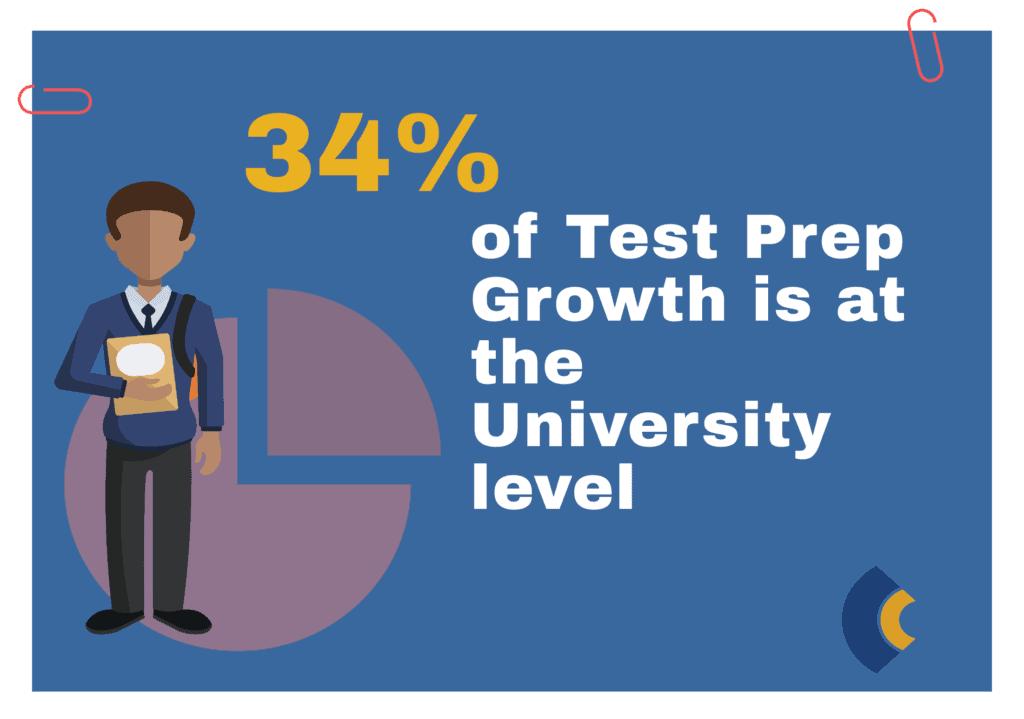
Each of these standardized exams is discussed below.
1. ACT

The American College Testing (ACT) exam is a standardized test that is used by most college admission boards throughout the United States and Canada. Since the late 1950s, millions of students have taken the American College Testing exam annually, which is administered by the nonprofit organizations known under the same name. The ACT exam assesses aptitude and competency in four basic academic skill areas – reading, math, English, and science reasoning.
2. CLEP
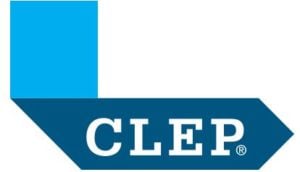
The College Level Exam Program (CLEP) is a set of tests that evaluate a test-taker’s knowledge in more than 35 areas. The purpose of the CLEP is to determine if a student already has the knowledge or aptitude in a certain subject to grant college credit. The College Level Exam Program exams are designed to assist students who have prior knowledge in a college-level course who wish to earn their degree more efficiently with the least amount of out of pocket costs. It is noted that most universities and colleges set forth their own minimum scores in determining who may receive college credit when applying to its school.
3. GED
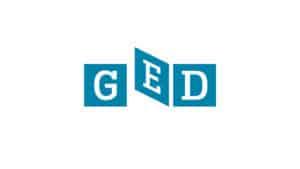
The General Educational Development (GED) Examinations provide students with a set of exams that allow these students to demonstrate whether their academic skills are equal to that of the standard high school graduate. Those who pass the GED earn a high school equivalency diploma, which can be used when applying for a job or to gain entrance into the military. The General Educational Development testing is done online at many testing centers in each state. Some of the best college test prep companies offer unconditional money back guarantees for GED study programs.
4. GMAT

The Graduate Management Admission Test (GMAT) assesses a test taker’s critical thinking skills. It evaluates competency in basic algebra, geometry, arithmetic, grammar, and data analysis. This computer adaptive examination is typically used to determine if a student meets the application requirements for a Master of Business Administration (MBA) degree program. Many graduate business schools through the world use the Graduate Management Admission Test score as an admissions criterion.
5. LSAT
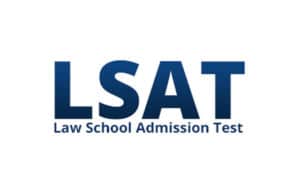
The Law School Admission Test (LSAT) is the only exam accepted by law schools that have received accreditation by the ABA – the American Bar Association (in Canada – all Common Law schools) to qualify for admission. The Law School Admission Test is organized into five areas. They include Reading Comprehension, Logical Reasoning (2 sections), Analytical Reasoning, and a Variable Reasoning section that is left unscored. Finally, a test-taker is asked to submit a writing sample at the end of the exam.
6. MCAT
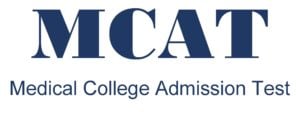
The Medical College Admission Test (MCAT) is a computerized exam given to potential medical school students vying for admission to a healthcare or medical degree program. The Medical College Admission Test assesses a test-taker’s competency in the biological & physical sciences, verbal reasoning, and the test taker’s writing aptitude. The MCAT test is generally required for students interested in a career in allopathic, podiatric, pre-med, or veterinary medicine. It takes nearly 8 hours to complete the exam.
7. NCLEX
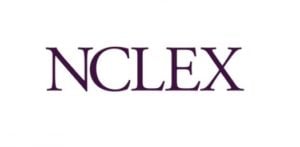
The National Council Licensure Examination (NCLEX-RN) is a national exam that allows test takers to determine if they have the skills to begin a career as entry-level nurses. Overall, the NCLEX exam, administered by the National Council of State Boards of Nursing, evaluates how a test taker uses their critical thinking abilities when faced with nursing judgments.
8. PRAXIS
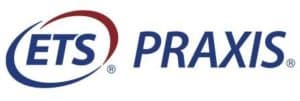
The PRAXIS is a series of certification exams administered by the Educational Testing Service for those interested in becoming public school teachers. More than 75% of U.S. states (and territories) require teachers to take and pass the PRAXIS test to qualify for a teaching position. The PRAXIS I (aka the Pre-Professional Skills Test) includes three separate exams in math, writing, and reading.
9. SAT

The SAT (formerly known as the Scholastic Aptitude Test) is a standardized exam that is primarily used to assess a student’s college readiness. The SAT was first implemented almost 100 years ago and is administered by the College Board. The SAT exam evaluates a test-taker’s skill in Mathematics, Critical Reading, and Writing. The SAT is typically given to juniors and seniors in high school so that their SAT scores are included in their college application.
10. TOEFL

The Education Testing Service (ETS) administers the Test of English as a Foreign Language (TOEFL), which evaluates non-native English speakers’ ability to speak English. The TOEFL exam is accepted in academic and professional circles. Additionally, the TOEFL is accepted in more than 140 countries and by more than 10,000 institutions of higher learning. This computerized test measures academic skills in English related to writing, speaking, reading, and also listening.
11. TEAS
The Test of Essential Academic Skills (TEAS) is used in the US and Canada to assess readiness for nursing education. It is a multiple-choice test that evaluates academic knowledge in areas such as math, reading, science, and also English and language usage. It is often a requirement for admission into nursing programs and is administered by the Assessment Technologies Institute (ATI).
The TEAS helps students determine strengths and areas for improvement before entering a nursing program. It also gives nursing schools an idea of a student’s potential for success in the program. Students typically take the timed test on a computer and have a total of 209 minutes for completion. Content of the TEAS may vary slightly, but it generally covers Reading, Mathematics, Science, and also English and Language.
12. GRE
The Graduate Record Examination (GRE) is a standardized test used for admissions to graduate and business schools around the world. It measures verbal reasoning, quantitative reasoning, and also analytical writing skills. The GRE is administered by the Educational Testing Service (ETS) and can be taken at designated test centers in various countries. Typically schools require it for applicants to both master’s and doctoral programs in fields such as business, engineering, and humanities.
13. AP
Advanced Placement (AP) exams are standardized tests offered by the College Board in the United States and Canada. They assess a student’s mastery of college-level material and provide an opportunity for students to earn college credit or advanced placement in college courses. These exams are typically taken by high school students who have completed AP courses in subjects such as biology, calculus, English literature, and also foreign languages.
AP exams are scored on a scale of 1-5, with a score of 3 or higher considered passing. These tests are a means of demonstrating academic excellence and can also improve college admissions prospects and potentially save students time and money by allowing them to skip introductory college courses.
14. IB
The International Baccalaureate (IB) exams are a series of standardized exams administered by the International Baccalaureate Organization (IBO) to students in the final years of their high school education. These exams test a students’ understanding and knowledge of various academic subjects at a high level. And they also assess their abilities in critical thinking, problem-solving, and independent research. The IB exams are recognized by universities and colleges around the world, and are often used for admission criteria and credit transfer.
15. ASVAB
The Armed Services Vocational Aptitude Battery (ASVAB) is a standardized multiple-choice test used by the United States Armed Forces to assess an individual’s abilities and aptitudes for various military occupations. The ASVAB measures knowledge and skills in areas such as math, science, reading, and also mechanical comprehension. It also includes a section on verbal and spatial abilities. Results of the ASVAB are used to determine a person’s eligibility for enlistment and to assign them to specific jobs in the military.
What is Standardized Test Prep?
Standardized test prep refers to the process of preparing for a standardized test, which is a test that follows a specific format and is administered and scored in a consistent manner. Examples of standardized tests include the SAT, ACT, and GMAT.
The purpose of standardized test prep is to help individuals become familiar with the test format and content, develop test-taking skills and strategies, and improve their performance on the test. This can be done through various methods such as studying test materials, taking practice tests, and working with a tutor or test-prep program. The ultimate goal of standardized test prep is to achieve a higher score on the test, which can have a significant impact on college admissions, scholarships, and other educational opportunities.
What Are the Benefits of Using Test Prep Resources?
Resources like free practice tests and study guides teach test takers to solve problems and prepare for test day. And there are many benefits to using these test prep materials.
Familiarize Yourself with Test Format
Test prep resources can help you become familiar with the format of the test before test day. This includes the number of sections, types of questions, time constraints, and overall structure.
Identify Weaknesses
By using test prep resources, you can identify your strengths and weaknesses in different subject areas. Many companies offer practice tests and study guides to help you focus your studying on the areas that require the most attention.
Practice and Repetition
Study materials provide practice questions and mock exams that allow you to apply what you have learned and reinforce concepts through repetition. Prep materials not only help you improve your speed and accuracy, but also build your confidence for the actual test.
Improve Time Management
Additionally, test prep resources often include time constraints similar to the actual test. Many have free practice tests that can help you become more efficient at managing your time during the exam.
Learn Test-Taking Strategies
Test prep resources often provide tips and strategies for approaching different types of questions. These tips are helpful for tackling difficult questions or solving problems with time constraints.
Stay Up To Date with Changes
Test prep resources are regularly updated to reflect any changes in the test format, content, or scoring system. This ensures that you are using the most relevant up to date information and accurate materials for your preparation.
What are the Most Trusted Test Prep Companies?
The most trusted test prep online companies include a variety of education services. Remember, though, the best test prep company will be one of the test prep companies that offer a comprehensive study program that meets YOUR needs and fits your budget.
Trusted Test Prep Company Names
There are many companies that meet this criterion. These test prep companies include –
Remember to select the best online test prep company that will help you optimize your score on any number of standardized tests.
SAT Prep Resources
- Khan Academy SAT Prep
- The College Board Official SAT Study Guide
- 7Sage SAT Prep
ACT Prep Resources
- Official ACT Prep Guide
- ACT Online Prep
- ACT Academy
- ACT Question of the Day
- ACT Flashcards
How Do You Strategically Prepare for a Standardized Test?
Standardized tests can have a significant impact on your college or graduate school applications, as they are often used as a measure of academic skill and potential. Proper preparation can help improve your test-taking strategies and increase your scores, giving you a better chance of achieving your desired results.
Additionally, preparing for a standardized test can also help reduce test anxiety, improve time management skills, and identify areas where you may need extra practice or focus. Ultimately, investing time and effort in test preparation can lead to greater success and opportunities in the future. Below are some ways to prepare.
1. Understand the Test Format and Content
Prior to beginning any test prep, familiarize yourself with the format and content of the standardized test you will be taking. Familiarize yourself with what topics will be covered on the test and the structure of the test (multiple-choice, essay, etc). This will help you identify the areas where you need to focus your studying.
2. Set Goals
Determine your target score and set a realistic timeline for achieving it. A goal will help you stay motivated and focused during your test prep.
3. Take Practice Test
Taking a practice test will give you an idea of your current level of performance and highlight the areas where you need the most improvement. Take practice tests to become familiar with the types of questions and the format of the test. This will also help you identify areas where you need to focus more on studying.
4. Identify Your Strengths and Weaknesses
Analyze your practice test results to identify your strengths and weaknesses. Focus on improving your weak areas while maintaining your strengths.
5. Develop a Study Plan
Create a study plan that allocates enough time for each subject and allows for regular breaks. Set aside specific times to study and stick to them. Break down the material into smaller chunks and focus on one topic at a time. Additionally, studying with others can help you understand the material better and exchange ideas. Study groups can also help keep you motivated and accountable. Whatever the plan – stick to it and adjust it as needed.
6. Use Study Materials
Utilize study materials such as textbooks, online resources, and study guides to help you understand the content and format of the test. Also review notes from class and any study materials provided by your teacher or professor. This will refresh your memory and reinforce important concepts.
7. Practice Regularly
Consistent practice is essential for standardized test prep. Set aside time each day or week to review and practice.
Tips for Preparing for Test Day
So you had a consistent study routine leading up to the test. What now? It’s not recommended to cram or study the night before a standardized test. The purpose of standardized tests is to assess the overall knowledge and skills of a student, and studying the night before will not have a significant impact on their performance. However, there are some best practices for the day of the test.
Get Enough Rest
Make sure to get enough sleep the night before the test. Being well-rested will help you stay alert and focused during the exam.
Eat a Healthy Meal
Make sure to eat a nutritious meal before the test. This will provide you with the energy and focus you need for the exam.
Arrive Early
Give yourself plenty of time to get to the test location, especially if it’s a new place. This will help you avoid any unnecessary stress or lateness.
Bring Necessary Materials
Make sure to bring all necessary materials for the test, such as calculators, pencils, and water. Check the requirements beforehand to avoid any surprises.
Stay Positive
Try to stay calm, relaxed, and confident during the test. If you feel yourself getting overwhelmed, take a deep breath and refocus your mind.
Manage Your Time
Pace yourself during the test to ensure you have enough time to answer all the questions. If you get stuck on a question, move on and come back to it later.
Read Carefully
Make sure to read each question thoroughly to fully understand what is being asked. Pay attention to keywords and eliminate answer choices that are obviously incorrect.
Use Test-Taking Strategies
Use strategies such as process of elimination and educated guessing when necessary. Don’t spend too much time on one question, as it may take away from other questions you could answer correctly.
Double-Check Your Work
After completing the test, go back and check your answers for any mistakes or omissions. Don’t rush through this step as it can make a big difference in your final score.
Stay Until the End
Even if you finish the test early, use the remaining time to review your work. Don’t leave early unless you are absolutely sure you have answered all the questions to the best of your ability.
